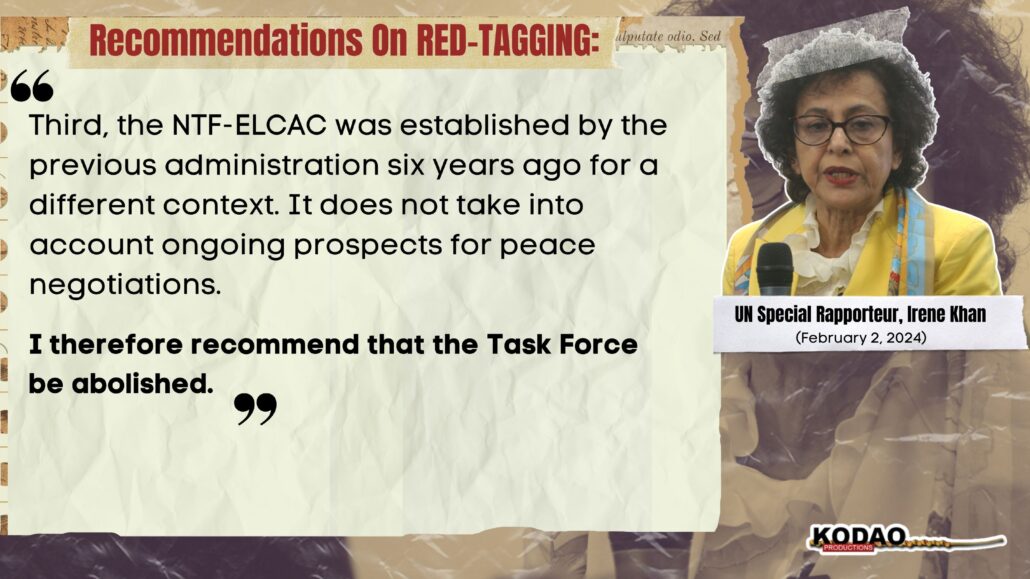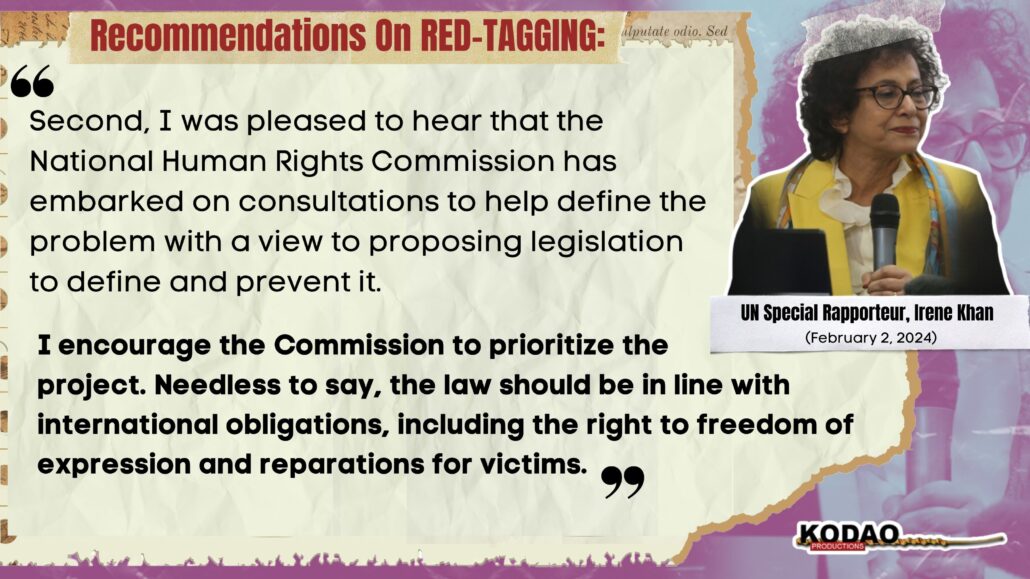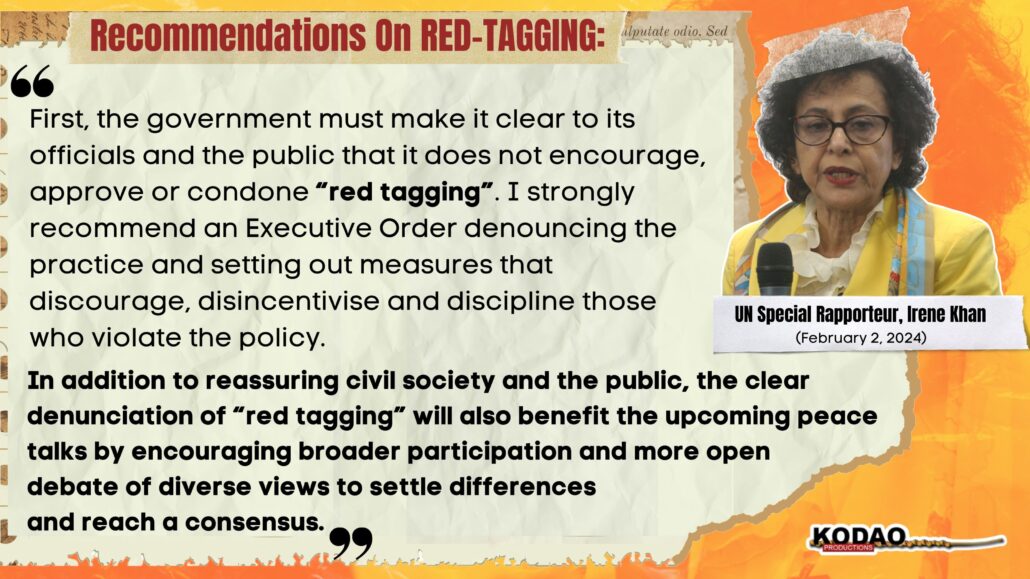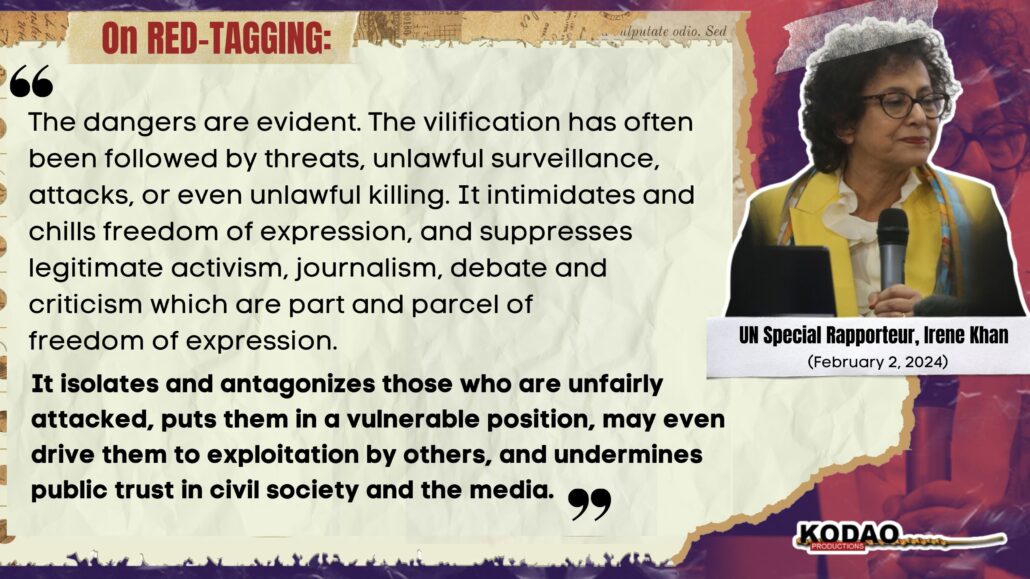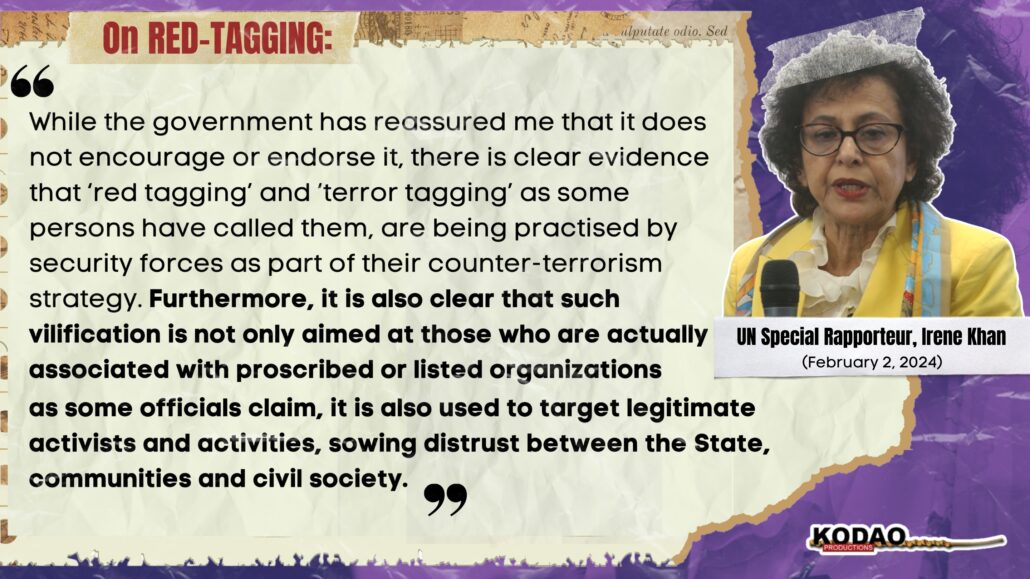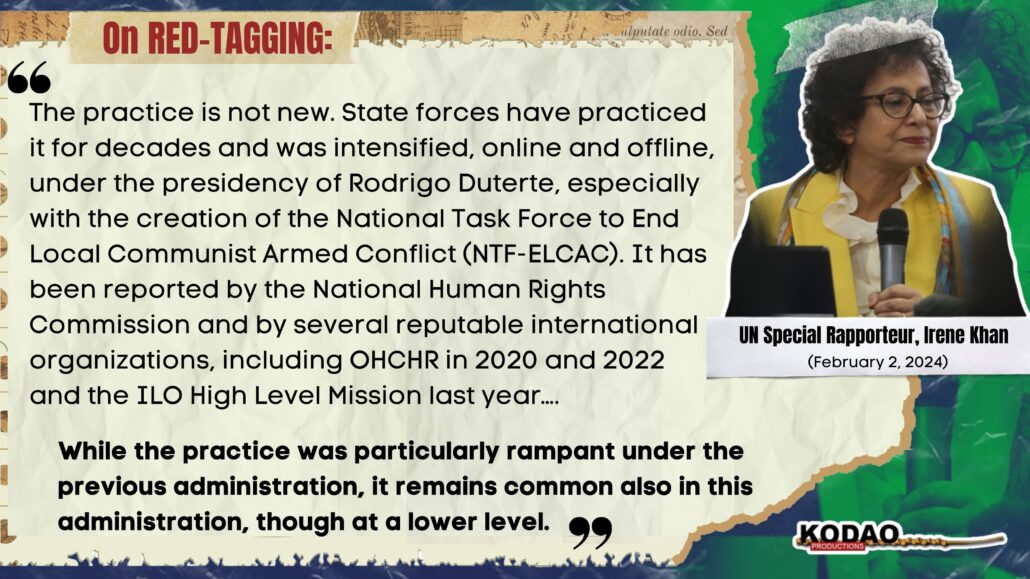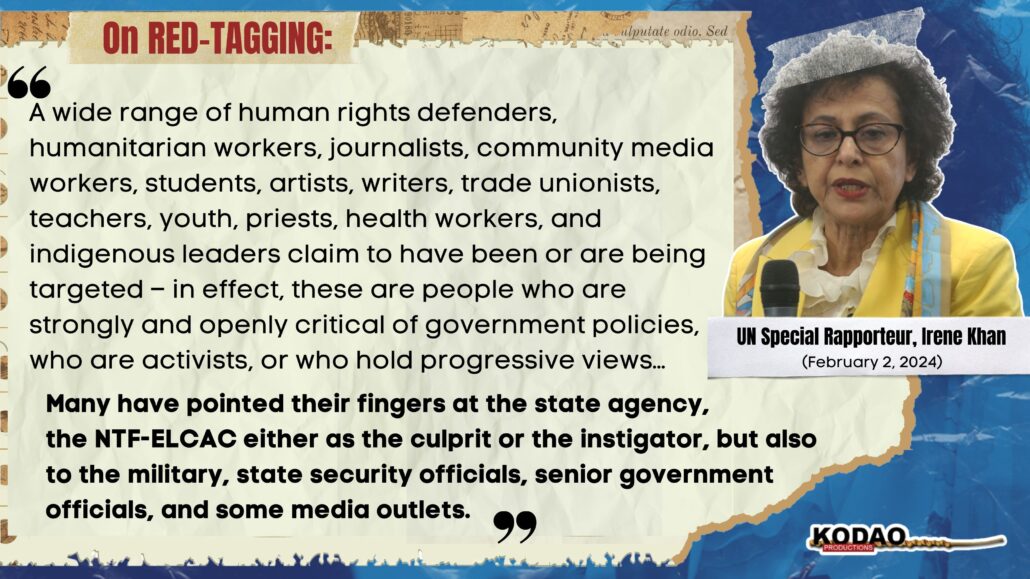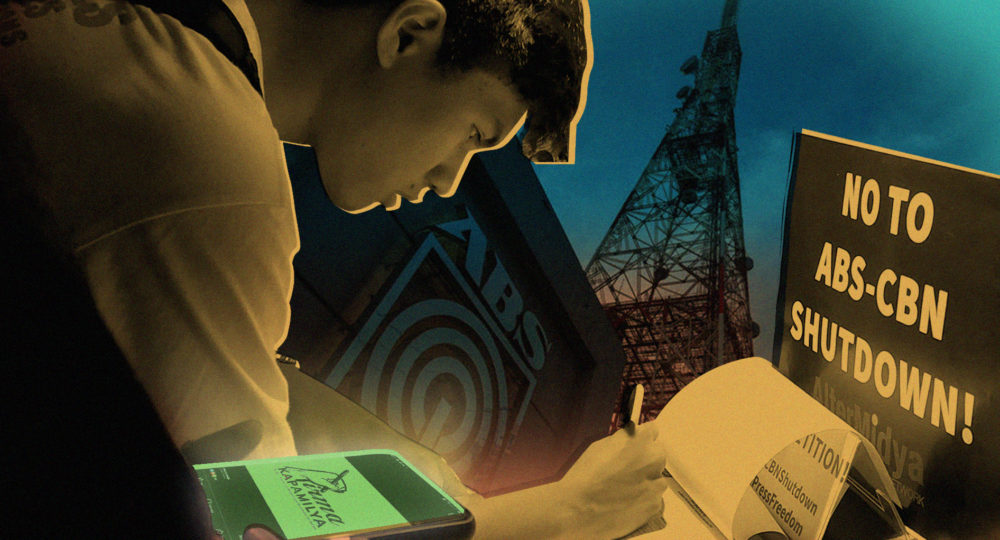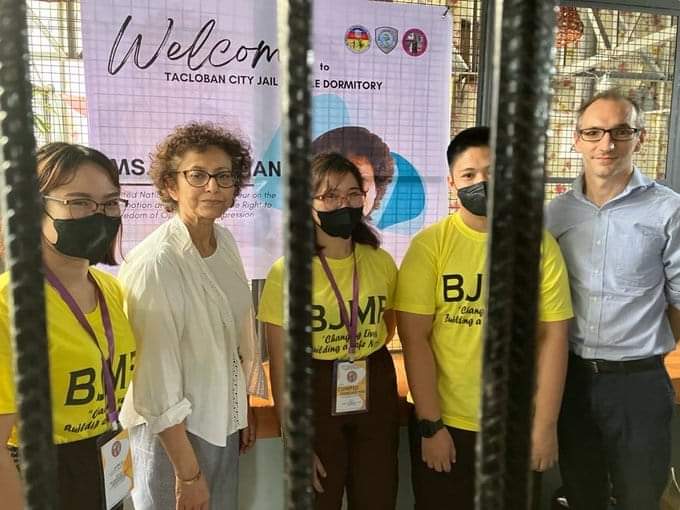United Nations (UN) special rapporteur on freedom of expression and opinion Irene Khan said the Ferdinand Marcos Jr. administration’s decision to open peace talks with the revolutionary Left is a positive signal but urged however for the abolition of the government’s anti-insurgency task force.
Among her recommendations in her exit press briefing last Thursday, February 2, Khan said the National Task Force to End Local Communist Armed Conflict (NTF-ELCAC) should be abolished “to allow for more inclusive peace-building platforms.”
“The tone of the new Administration, coupled with its decision to open peace talks with insurgents and a renewed engagement with the international community, are positive signals,” Khan said.
“But addressing the serious and deep-seated human rights issues will require more fundamental and sustained reforms,” she added.
Khan said the NTF-ELCAC is “outdated” and stressed that “does not take into account the ongoing prospects for peace negotiations.”
The government, the National Democratic Front of the Philippines and the Royal Norwegian Government simultaneously announced ongoing discussions for the possible resumption of formal peace negotiations.
Immediate rejection
Khan’s recommendation was however immediately rejected by Marcos administration officials, even accusing the UN expert of blindsiding the government with her preformed opinions before arriving in the Philippines.
National security adviser Eduardo Año, Peace adviser Carlito Galvez Jr., interior Secretary Benjamin Abalos Jr., National Security Council assistant director Jonathan Malaya and media security task force head Paulino Gutierrez in unison rejected Khan’s recommendation of Khan to abolish the NTF-ELCAC.
“Please take note that this is a 55-year old running insurgency. Now that we have reached this stage in the campaign, we feel it is improper to call for its abolition,” Malaya said, again claiming the government is about to defeat the New People’s Army (NPA).
Año for his part said the NTF-ELCAC “does not encourage red-tagging.”
Sen. Imee Marcos also mocked Khan’s call to abolish the task force as “supremely presumptuous,” belittling the length of time the UN expert spent in her in-country investigations.
“After a mere 10 days in the Philippines, during which she never visited the NTF barangays but only met a chosen few witnesses, she has the knowledge and the right to tell the Philippine government what to do?” Marcos said in a statement.
Ignorant response
Rights group Karapatan however labeled the Senator as ignorant, saying she should be schooled on international human rights mechanisms like the UN and the International Criminal Court.
“They cannot just sign human rights treaties, conventions and go to town saying that we have a ‘vibrant’ democracy, without being held accountable for the Philippine government’s obligations and commitments in this global rights system,” Karapatan secretary general Cristina Palabay said.
Palabay pointed out that it was the government that invited Khan into the Philippines and her recommendations must be respected as part of the government’s obligations to the international community.
“What they fail to see is that it is simply game over for the NTF-ELCAC, despite all the lights and sounds show, parties and meetings they put up during SR Khan’s official visit,” Palabay said. # (Raymund B. Villanueva)
